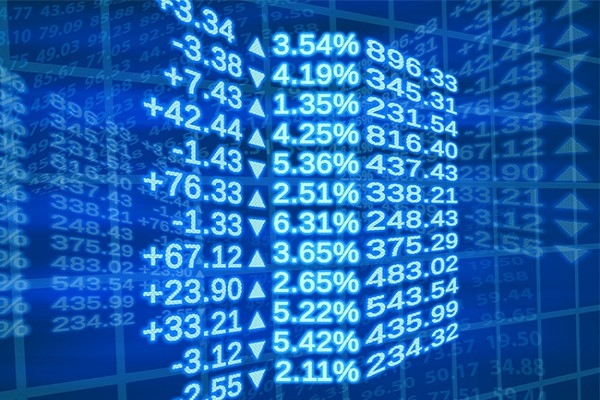

Preview of next week's FOMC meeting. The Federal Open Market Committee (FOMC) will meet again on September 20-21. The FOMC increased the fed funds rate by 75 basis points (bps) at its june and July Fed meetings, after a 50 basis point increase in may and a 25 basis point increase in march.
According to CME Group's FedWatch tool, there is a roughly 9-in-10 chance the committee will raise another 75 basis points later this month. The meeting will also include the release of the Fed's latest summary of economic forecasts (SEP).
Inflation situation and more rate hikes. When the FOMC was last collected, the consumer price index (CPI) report for June showed that inflation increased by 9.1% compared to the previous 12 months. Then, the July CPI report fell to 8.5% thanks to falling gasoline prices, and to 8.3% in August, which was above the expected 8.1%.
The July core personal consumption expenditures (PCE) reading, which subtracts variable food and energy costs, showed prices rose 4.6% from the previous 12 months. This is not only well above the Fed's 2% target, but also a full percentage point higher than the July 2021 reading.
Fed vice chair Lael Brainard summarized the current state of inflation. She noted that the price of goods is still far above the price suggested by the pre-pandemic growth rate, but that the price of services has not yet caught up.

Real Personal Consumption Expenditures. Source: Bureau of Economic Analysis
This shows inflation has a long way to go for normalization, which is why the Fed is so committed to raising interest rates and lowering its $8 trillion balance sheet through quantitative tightening.
'We're in that business as long as it takes to lower inflation,' Brainard said.
Is the US in recession? While the two-quarter rule suggests it is, a recession has never been declared without job losses, and the US labor market is adding hundreds of thousands of jobs each month.
Additionally, while GDP has shrunk in the last two quarters, a relevant indicator of economic growth (Gross Domestic Income, a measure of aggregate output that combines income rather than production) shows that the economy is growing. GDP and GDI should equal each other, but there is always an inconsistency between the two. Currently, the two measures offer very different views on the economy, with GDP showing the economy shrinking and GDI showing the opposite.
What is clear is that if the US economy goes into a recession- or if it has and hasn't been announced-it will likely look very different from previous recessions.
Warning from Musk to the Fed. In a tweet on Wednesday, Elon Musk said that the Fed should give up its fight against inflation and instead start worrying about deflation, otherwise known as falling prices. The Tesla CEO urged the central bank to cut interest rates by a quarter of a percent -- in his own words, 'a 0.25% drop' -- after saying in early September that 'a massive rate hike by the Fed poses a risk of deflation.'
Musk's 0.25% recommendation came in response to tweets from Cathie Wood, CEO of investment firm Ark Invest. Wood noted that prices for many key commodities, such as timber, oil and copper, have fallen over the past few months from their early 2022 peaks.
In response to Wood, Musk added in another tweet Wednesday that the impending deflation was 'neither subtle nor covert'.
Conclusion? The Tesla CEO's tweet also opposes the Fed's most likely interest rate decision. Markets and economists expect policymakers to raise interest rates by three quarters when they meet on Sept. 21, marking the third consecutive increase of this size. On August 26, Fed Chairman Jerome Powell pointed out that the central bank's rate hikes are almost over and the Fed 'must continue until the job is done'.
While short-term deflation seems unlikely, large increases still pose some serious risks.
Rising interest rates fight inflation by encouraging companies to cut spending, but this often comes at the expense of jobs. That means a wave of layoffs across industries are likely in the near future, with the Fed warning in recent weeks that they think a certain level of unemployment will be necessary to curb inflation.
'These are the unfortunate costs of reducing inflation,' Powell said at the Fed's economic symposium this year: 'But not being able to restore price stability would mean much more pain.'
In a paper published this month by the Brookings Institution, researchers found that to keep inflation down to its 2% target, the Fed would need to raise the unemployment rate 'much higher' than the central bank's forecast of 4.1% in 2024. Using Brookings data, Jason Furman, former chair of President Obama's White House Council of Economic Advisers, estimated that unemployment would have to reach at least 6.5% to bring inflation that much.
Kaynak: Tera Yatırım-Enver Erkan
Hibya Haber Ajansı